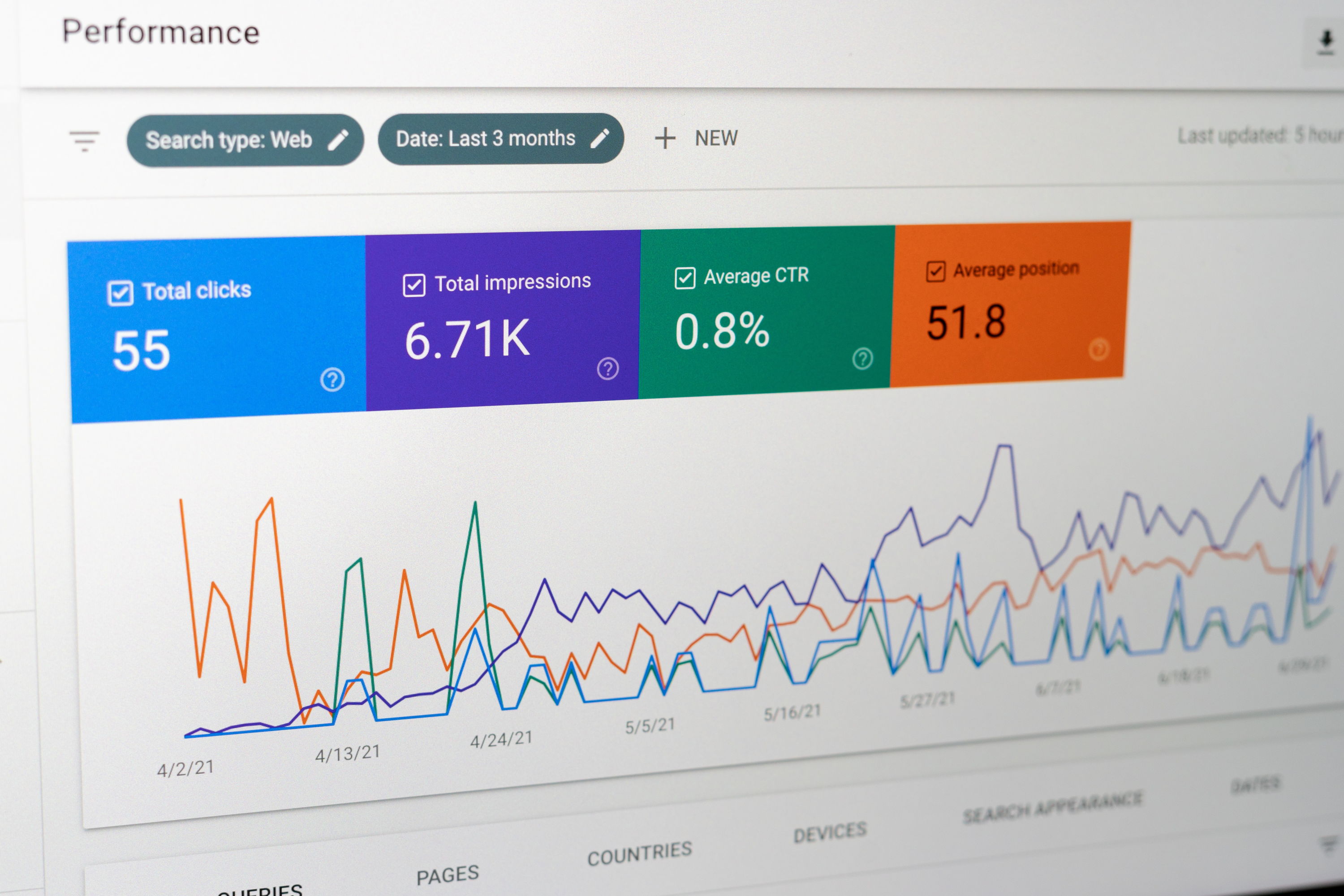
How to use keywords for your press release SEO
Do press release keywords actually matter? Let's explore how keywords impact SEO before we fill our releases with dozens of them.
Ah, the internet. Making things excruciatingly complicated since 1983. Press releases used to be simple: you'd write your news, send it (via postal mail) to the journalists, and maybe get coverage, maybe not.
Now, you can't just write a press release and be done with it. You have to consider the entirety of the internet and how your press release compares to the thousands of others being published and sent every single day. In an effort not unlike trying to stifle a forest fire by slapping a damp tissue on it, PR people (and digital marketers) have started using keywords to manage this massive influx of data across the internet.
But how effective are these keywords when it comes to getting eyes on your press releases? Do they really carry the weight and significance that your boss seems to think they do? SEO and keywords might not matter as much as you'd think when it comes to your press release copy, but they still can help you overall. Let's discuss how.
Keywords are words. But they're more than that. They are specific words that, when combined with other words, create a way for readers to find your content amongst all the other content worldwide. See, the major search engines are constantly sifting through all the pages on the internet (called "crawling") and organizing them based on how useful and relevant the information is. Keywords play a major role in this crawling process.
Because of the sheer massive size of the internet, keywords have become incredibly important. Almost too important. Thus the phrase "search engine optimization", or SEO, was born. SEO is the art and science of making your content friendly for search engines by understanding what the search engines want to see and tweaking your content to fit those criteria.
Keywords are often a huge part of this optimizing strategy. In fact, some digital comms people have gone keyword crazy and absolutely stacked their websites with aggressive amounts of keywords, causing major search engines like Google to officially say, "Hey! Cut that out!" (paraphrased).
SEO is all well and good, but keywords are also helpful for other purposes – for example, newswires, emails, social media, and more. We will be discussing both SEO keywords as well as non-search-related keywords in the use cases in this article.
Are you confused yet? Me too! Let's continue.
The big question: do keywords in press releases really help with SEO?
The short answer: kinda.
The longer answer: not really.
SEO is a complicated business that incorporates many, many elements into what the algorithm considers "valuable" enough to rank one set of content over another. Remember, search engine optimization is a vicious, brutal game with everyone vying for the top spots for their brands. The odds of a press release ranking for most keywords are generally pretty low unless someone is explicitly searching for news about that keyword alongside your brand. But, that doesn't mean that keywords don't give other benefits to your content.
A press release rarely actually ranks highly on Google for a variety of reasons. To explain why, let's look at an example.
A beverage company is releasing a new line of energy drink sodas called, oh I don't know, Palpitation Juice. Interested in generating new buzz (literally and anatomically), they build an entire social media campaign, create a new website just for the new line, set up a few influencer deals, and then send out a press release about the new drinks. They make sure the press release includes the important keywords related to all things carbonated energy drinks.
The other campaigns do fine, but the press release on its own garners no views from search engines. It's not even ranking in the top 100 on Google, much less generating traffic. Why is this?
Well, for a few reasons:
- The average press is 500 words or less. Google tends to rank pages that are much, much longer than that
- There are tons of long-form content pieces on the internet already explicitly addressing the energy drink business that are crushing it in terms of EEAT (Experience, Expertise, Authoritativeness, and Trustworthiness)
- Most high-ranking pages are older and have more authority and backlinks than the average newly-published press release
- Backlinks are powerful in helping a page gain traction. Most publications link to the brand, not the press release itself, when covering the news
And so on, and so on. Press releases, by virtue of what they are, tend to be pretty unhelpful for SEO.
That's not to say they are useless, though. If somebody wants to know about your brand's new energy drink, they could easily search [brand name] [Palpatation Juice] and that will probably take them directly to your press release. In this case, it's powerful and good (unlike Palpatation Juice, which is powerful and bad).
Press releases also carry a lot of value outside of SEO, such as the ability to communicate with journalists and shareholders. So don't throw your newsroom away just yet.

You want to reach out to the media but you don't want to look silly by making a rookie mistake.
You might be looking at the heading of this section and wondering if I, the writer, even read the last section. Didn't we just explicitly agree that press releases are not necessarily good for SEO? Yes. But hear me out.
SEO is not done in a vacuum. A press release on its own will not necessarily generate a ton of clicks, views, and impressions. However, your site as a whole will benefit from a robust newsroom filled with lots of SEO-happy press releases. EEAT is built over time with high-quality, authoritative content that internally links to itself.
Simply put, a newsroom loaded with SEO press releases is more powerful than the sum of its parts. In conjunction with a company blog, strategic landing pages, and a bunch of other SEO goodness, your press releases will help your website grow into a super-mega SEO powerhouse (eventually).
In summary, a press release by itself is not going to make you a Google God. Many press releases in an optimized newsroom embedded within a professional website will definitely help you rank to the stars (and by stars I mean, like, page 2).
"General SEO" is not the only reason that you should include keywords in your press releases. Keywords are, in fact, very useful not just for robots but for us mere mortals as well, and should absolutely be included in your press release for a variety of reasons outside of search. These are those reasons.
As mentioned above, if you are a global or digital brand appealing to a global or digital audience, yeah, good luck. Ranking for anything with a worldwide reach using a press release is going to be difficult unless your product or service is extremely specific.
Local SEO, on the other hand, is a whole different ball game. If you are sending out a press release for an event or business launch happening in a specific city or region, your odds of being found by your target audience are much higher. Someone searching [indoor gym, Fairfield, Ohio] (for example) is far, far more likely to come across your SEO-optimized, keyword-rich press release than if they were searching just for "indoor gym" anywhere.
In this instance, keywords can be phenomenally useful in a press release, and you should definitely make sure that you do a hearty amount of keyword research before drafting your copy. This will help you understand what people in your area are searching for when attempting to find solutions to the problems that your brand solves.
Search engines are simply a marginal fraction of how your audience will find your press release. Press releases are for journalists and stakeholders. Websites are for consumers. Keywords should be helpful for journalists and more heavily considered for their use cases than for any search engine (even Bing, if you can believe it).
The average journalist gets between 50 and 5 million emails per day. They simply do not have the time, energy, or bandwidth to handle every single press release that comes their way. This is, in large part, because marketers and publicists tend to not do their research and send entirely unrelated and unhelpful pitches to overworked journalists who are in completely different industries. But that's a story for another time.

You want to contact the media and get results without being annoying. We asked them the best way to do it.
This is where keywords come in. If a journalist is writing a story about lawn chairs and you have sent them a press release about your new lawn chair product lawn-ch, they can simply search "lawn chairs" in their email archives and find your press release. If this seems like a far-fetched possibility, I assure you that this is exactly what they do.
So, before you send out that press release pitch, make sure you're sending it to the right journalists to fit your story. Then, make sure that your press release has amazing keywords, as well as your email pitch and email headline.
If you're still using newswires for your press releases… that's cool. Newswires are a bit of a mixed bag in the year 2023, with many finding their efficacy to be minimal compared to the cost, but, you know, you do you.
That said, if you are going to use newswires, you should do so in the best way possible. Optimizing for keywords is important when hundreds or even thousands of press releases are sent daily via newswire.
Adding keywords to your press release headline and body text will ensure the journalists who use the newswires will find your press release among the masses. Being coy or clever with your copy is simply not the best idea because puns are far less searchable than actual, bonafide keywords. We know, it's sad. We love puns too.
You can use keywords to share your press releases on social media. Legally, I can't stop you. Many professionals (me) would argue that social media is not the ideal distribution channel for a press release. However, if you decide to ignore my sage advice and post your press release on social media platforms, do some keyword optimization.
People are treating social media like search engines more frequently these days. So, while the odds of your press release finding your target audience on social media are low, they're never zero.
So, now that we've mutually agreed that keywords are necessary (but not the most necessary), how should you add them to your press release? Unfortunately, the answer is: just be a good writer.
Never mind, that's a terrible answer. Here are some more concrete examples of how to include keywords in your press releases:
Finding the right keywords to add before you start writing is paramount to success. Ask yourself:
- What do you want people to search for in order to find your PR?
- What are the key phrases that journalists are likely to search for when they dig around in their archives?
- What is the main takeaway you want your readers to get from your press release?
Having an identified keyword (or keywords) at the forefront of your mind is perfect for when you're sitting down to write up the press release. In fact, this is just good practice for all forms of writing, but especially press releases. You can identify these keywords in a number of ways, including through tools like Ahrefs and Semrush. Or you can simply wing it and hope for the best.

Save time and reduce frustration with these press release tips from the experts
Now that you know how useful keywords can be, it's tempting to include as many as you can in order to optimize your keyword strategy. But please don't do this. Use keywords as part of your natural writing, but don't have every sentence (or even header) include the keyword. It's awkward and doesn't help with SEO.
It's also good to mix things up a bit. Algorithms are powerful enough now to infer intent, not just words. Using an assortment of keywords, synonyms, and supporting language is good. Always keep the reader (and their reading experience) in mind.
As previously mentioned, search engines can recognize keyword stuffing and it can actually hurt your ranking as opposed to helping it. Definitely include keywords where relevant and absolutely have them in your press release title. But don't worry about going overboard or obsessing about outdated metrics like keyword density.
Go through and edit as you usually do, but keep an eye out for awkward or unnecessarily repetitive keywords and junk them. Your readers will thank you.

Yes, that is too many pitches. Here's what we found 🕵️♀️
Congratulations on officially becoming the premier expert on press release SEO and keywords in press releases. Now you can master the art of infusing helpful keywords in all of your comms (but not too many, lest it gets weird).
Prezly – software for modern PR teams
Write & publish brand stories in an online newsroom
Send email campaigns, pitches & newsletters
Manage all your contact lists in a single CRM, with easy import & export
Measure performance to see who's engaging with your stories